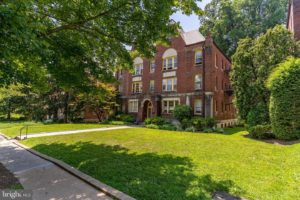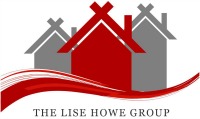Financing a co-op introduces you to new concepts like cooperative, stock shares, board approval and underlying mortgage. If these sound like Greek, don’t despair. While buying a co-op is different that buying a condo, it does not have to be significantly different.
How a Co-op Is Different
 A co-op (housing cooperative) is the legal term for a housing unit that is owned and controlled jointly by a group of individuals who have shares, membership, and/or occupancy rights to particular housing locations. A co-op is essentially a nonprofit corporation, complete with a board of directors. As a co-op owner, you are a shareholder rather than an owner of real estate. This means the co-op owner does not actually own his or her unit, but instead owns shares of the co-op relative to the size and desirability of the unit. Those shares give you the right to occupy your unit but you do not own it.
A co-op (housing cooperative) is the legal term for a housing unit that is owned and controlled jointly by a group of individuals who have shares, membership, and/or occupancy rights to particular housing locations. A co-op is essentially a nonprofit corporation, complete with a board of directors. As a co-op owner, you are a shareholder rather than an owner of real estate. This means the co-op owner does not actually own his or her unit, but instead owns shares of the co-op relative to the size and desirability of the unit. Those shares give you the right to occupy your unit but you do not own it.
In the case of a condo, the owner actually has a deed to the physical space of the condo. In addition, the condo owner has an undivided ownership interest in the common elements of the condo building, such as the elevator, pool, gym and lobby. A co-op is not the same as a condo, which is a type of real property that’s independently owned. A co-op owner has an “ownership interest” in all the amenities in the co-op building but it is through the ownership of stock shares rather than the deed.
Fun Fact. DC collects transfer and recordation taxes on the sale of co-ops (even though the buyer is purchasing shares of stock rather than real property) but Maryland does not. Buying a co-op in DC will not save you any money in closing costs but it will be less expensive in Maryland.
Financing a Co-op
 If you are financing a co-op purchase, the loan you receive will not actually be a mortgage. Instead, it will be a loan to purchase shares of stock in the co-op. In practice, it is generally the same as a regular mortgage. The amount of the required down payment depends on the rules of the co-op and the lender. Some co-ops require 20% down while others are satisfied if the buyer puts down only 5%.
If you are financing a co-op purchase, the loan you receive will not actually be a mortgage. Instead, it will be a loan to purchase shares of stock in the co-op. In practice, it is generally the same as a regular mortgage. The amount of the required down payment depends on the rules of the co-op and the lender. Some co-ops require 20% down while others are satisfied if the buyer puts down only 5%.
Financing a co-op purchase is slightly more complicated – but not more difficult – than financing a condo purchase. It is more complicated because not every bank will finance a co-op. Lenders won’t underwrite a mortgage for a property on which they can’t foreclose. You have to shop around to find the right bank for you. Some banks will not finance any co-ops. Others will only finance certain co-ops. In other words, even when a bank, such as PNC, agrees to finance a co-op, it may not finance every co-op in the city. To make the situation complete and more complicated – even within the bank, you may need to go to a different loan officer who is familiar with that particular co-op in order to get your loan processed.
The lender will want to see how the co-op operates and take a look at the underlying mortgage. It will also examine how the board is run, checking for any major planned expenses and ensuring there are sufficient financial reserves to handle the unexpected. This is one reason that co-ops enter into relationships or recognition agreements with certain lenders and why even if a lender does co-op mortgages, the lender may not be willing to do mortgages on all co-ops.
Larger co-ops in areas where co-op housing is relatively common may have relationships with certain lenders, which can simplify the financing process.
The finance of a co-op purchase is more complicated than a conventional mortgage because it is the sale of stock rather than real property and the bank will only lend on those co-ops whose stock arrangements the bank understand. Therefore, if you are interested in a particular co-op, you need to find out which banks have a recognition agreement with the co-op and talk with that co-op’s lender.
Don’t worry though. Remember that purchase of a co-op is more complicated, but not more difficult, than buying a condo. The lender will require that you provide the same kind of information for a co-op and a condo.
Board Approval
Another thing to expect in buying a co-op is that there may be some kind of Board approval for your co-op purchase. This is of course different from a condo purchase. The Board, representing the other owners of the building, is interested in your financial stability and strength since all the owners are responsible collectively for paying the underlying mortgage, the taxes, insurance, and maintenance fees. The failure of a few owners to pay their fees could undermine the financial stability of the entire building.
You might have to go to a meeting of the Board so that they can interview you and make sure that you understand the responsibilities of co-op ownership. Don’t worry though. While co-op boards can reject prospective purchasers without explanation, they may not violate federal or state housing or civil rights laws. Have you heard horror stories about co-op boards in New York? Co-op boards there have turned down celebrities because they would bring too much attention to the building. Don’t worry! That doesn’t happen in the Washington DC area.
Underlying Mortgage as Part of Financing a Co-op
Many co-ops have an underlying mortgage, the payment of which is included in the monthly co-op fee. An underlying mortgage is the original loan taken out by a housing cooperative to finance the purchase of the land or building that it occupies or to pay for significant repairs to the building. A cooperative’s underlying mortgage payments may account for a substantial amount of its members’ monthly fees. Once the obligation has been paid off, the co-op dues may drop significantly. On the other hand, the board may take the opportunity to refinance the mortgage to pay for a significant renovation project. Whereas a condo community would impose a special assessment to pay for repairs affecting all the owners, the co-op board will take out an underlying mortgage which is paid by everyone through the co-op fees.
Financing your co-op purchase will be affected by how big the underlying mortgage is. Once you know what the underlying mortgage amount is, you will deduct that and the amount of your downpayment from the purchase price to determine what you are going to finance. For instance – if the purchase price is $100,000 and the underlying mortgage is $10,000. In addition, you want to put down 20%. You will deduct the underlying mortgage amount of $10,000 from your purchase price, because that has been financed through the co-op fee. Your downpayment is based on the sale price minus the underlying morrgage and then the calculation of your downpayment is based on that difference. In this case, you would put down 20% of $90,000 ($18,000) and finance $72,000.
Purchase Price – $100,000
Underlying Mortgage- minus $10,000
Amount Remaining $90,000
Down Payment of 20% based on $90,000 $18,000
Amount Financed – $72,000
In addition – the payments you make on the underlying mortgage as part of your co-op fee are tax deductible and you will get a statement each year from the co-op board detailing your tax deductible payments (which will also include the property tax payment.)
Need More Information on Financing a Co-op?
If you would like more information about co-ops in DC or you have one to sell, please give the Lise Howe Group a call at 240-401-5577 or email us at lise@lisehowe.com. Don’t you want to work with a realtor who understands the intricacies of cooperatives? Some of my favorite buildings in all of DC are co-ops so it would be a shame to eliminate them at the start. The additional good news is that co-ops are frequently larger than their comparably priced condos — because of the confusion about what the cost of the co-op mortgage really is and how hard or easy it is to get a mortgage on a co-op. That co-op may actually be a good deal! So…. give us a call and get our list of favorite coops currently on the market – the ones that represent the REALLY good value!
Co-ops for Sale in DC Now
